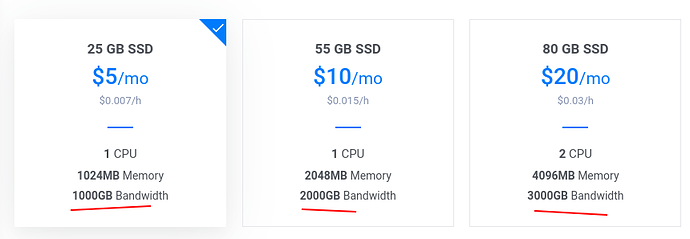That is my paranoid fear - I am spreading my machines all over their data centers in hopes that this does not happen to me, or at least if it does, it’s not my whole customer base. I am also going to check out Digital Ocean this weekend - might not hurt to use multiple providers.
As was already mentioned - and this is still firmly in the realm of “opinion” and not “fact” - the value in Azure and other big-cloud players tends to be the broader ecosystem or related services. Not cost savings.
With FreePBX there’s not really any use of “related services”… you don’t connect with Azure AD, you don’t use MS SQL servers, etc. Or AWS for example, you don’t use their database services, caches, etc. Maybe you would use S3. The point is, what you want out of the cloud provider for hosting FreePBX is the virtual machine, and for that alone, you can often do better elsewhere.
Since this thread is about Azure though, I will share a few things I like about it. I don’t run much there but what I have has seen 0 downtime, which I cannot say about Vultr. Microsoft support is also competent, if a bit slow. And MS documentation is superb. Seriously, docs.microsoft.com is amazing. Azure’s VM config makes a lot more sense to me than AWS or GCP.
I think in terms of availability of the providers discussed here, my ranking would be Azure, then DO, then Vultr. Maybe I picked the wrong Vultr DC? (New Jersey)
I wasn’t looking for cost savings - I AM looking for reliable hosting so I don’t have to do it myself - having my own hosting setup is just too much work for my client-base size and employees - while I can do everything necessary to support it, I am the limiting factor as far as scaling out to more clients.
I am not looking at the hosting portion as a major profit center - it’s the “enabling” feature that let’s me sell my services including dial tone to our customers and actually make money on that.
Azure was my first choice because we have used Hyper-V as our production virtualization platform since it came out - it is by far the platform that we are most competent in supporting.
I haven’t given up on Azure - as part of our partnership with Microsoft, we have lots of unused Azure credits, so I am still going to try and use it. But migrating the machine (supposedly supported) is challenging to say the least. The lack of a connection to the Console mystifies me - I am going to try the Serial Console trick, but even that worries me as far as dealing with problems in the future.
We shall see - Zero downtime is the goal - if Vultr can’t provide that, I will move on - and if I can reliably get the migration working, then Azure is still an option.
How would you know? That seems like luck (bad)?
I am a Microsoft Solution Architect and love MS and the technology however I have platformed all our client PBX’s on Digital Ocean and I am really happy with the platform, controls and costs. It costs about $10 US per PBX using their tier 2 GB Memory / 50 GB Disk / TOR1 - CentOS for each PBX; our largest PBX hosts 60 Users/handsets.
I do not know how it would fair using Azure as I have not tested but looks more expensive.
Semi related but thanks to this thread I took a closer look at Vultr and Digital Ocean. What’s the quickest way to find the total data transferred in and out of a server over a time period? It sounds like the 1 TB limit is enough for most servers but I’d like to see some real numbers.
My house does not do 1TB total transfer with 4 people only watching streaming TV (no cable TV).
Easy to know (thanks datacaps…)
So with that said, this is not something you will ever be concerned about with a PBX.
But if you are, the next tier up has double.
One easy way to deploy a metric for a linux system is
{yum,apt} install systat
at any time later sar can break it all down by the hour for the last couple of weeks, it covers most every aspect of your systems consumption.
Very conservative back of the napkin calculations - 1TB/month would be good for 50+ ulaw users talking non-stop 24x7.
And that kind of concurrent user count would be something you’re going to have on more than the five dollar instance
Thanks, Going to buy a $5 instance on both providers and when I get freepbx set up on them will try bombarding them with a broadcast to see if they can handle 20-30 concurrent calls.
After sysstat , install sipsak on each and stress the buggers one against the other, you will likely find you can do a hell of a lot more than 30  and
and sar will show you what it ‘cost’
So much good info in this thread! I am taking another stab at Azure this weekend - I will post on this thread the results, since this is (was) a thread on Azure. I am going to do a separate post on Digital Ocean VS Vultr.
Thanks Dicko for the hints about bandwidth utilization - it would be good to know for yourself and not have to just trust what the provider says you used!
This topic was automatically closed 31 days after the last reply. New replies are no longer allowed.

